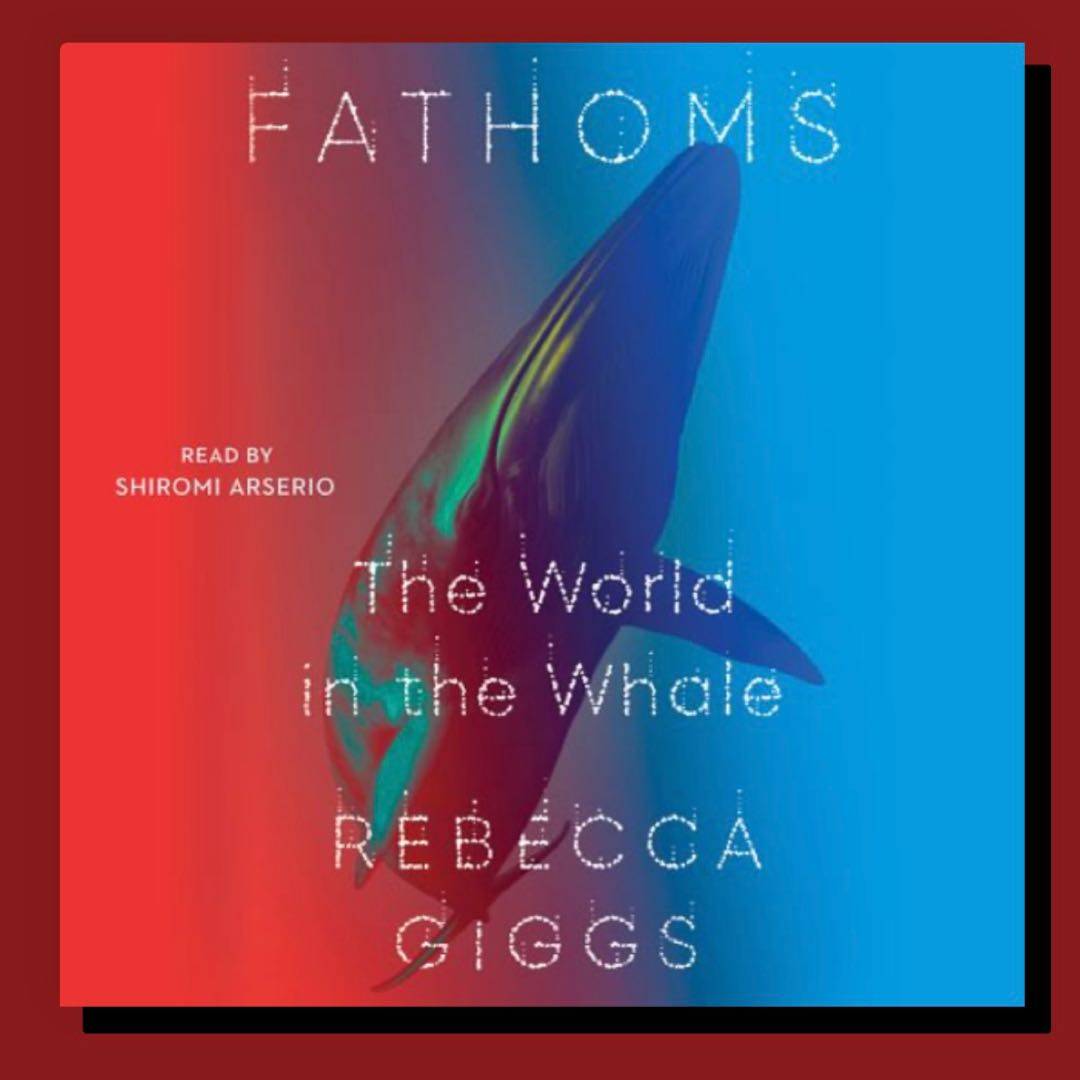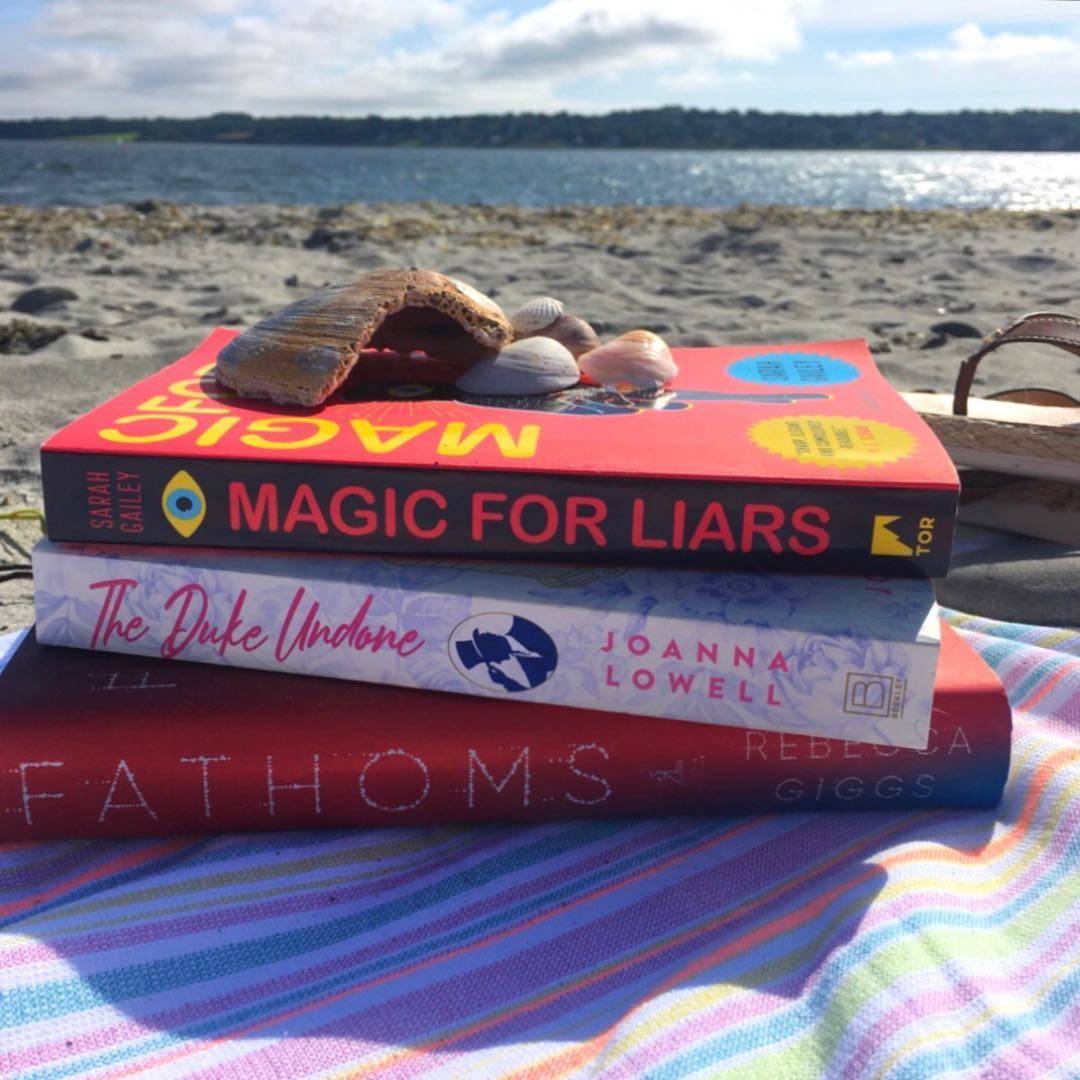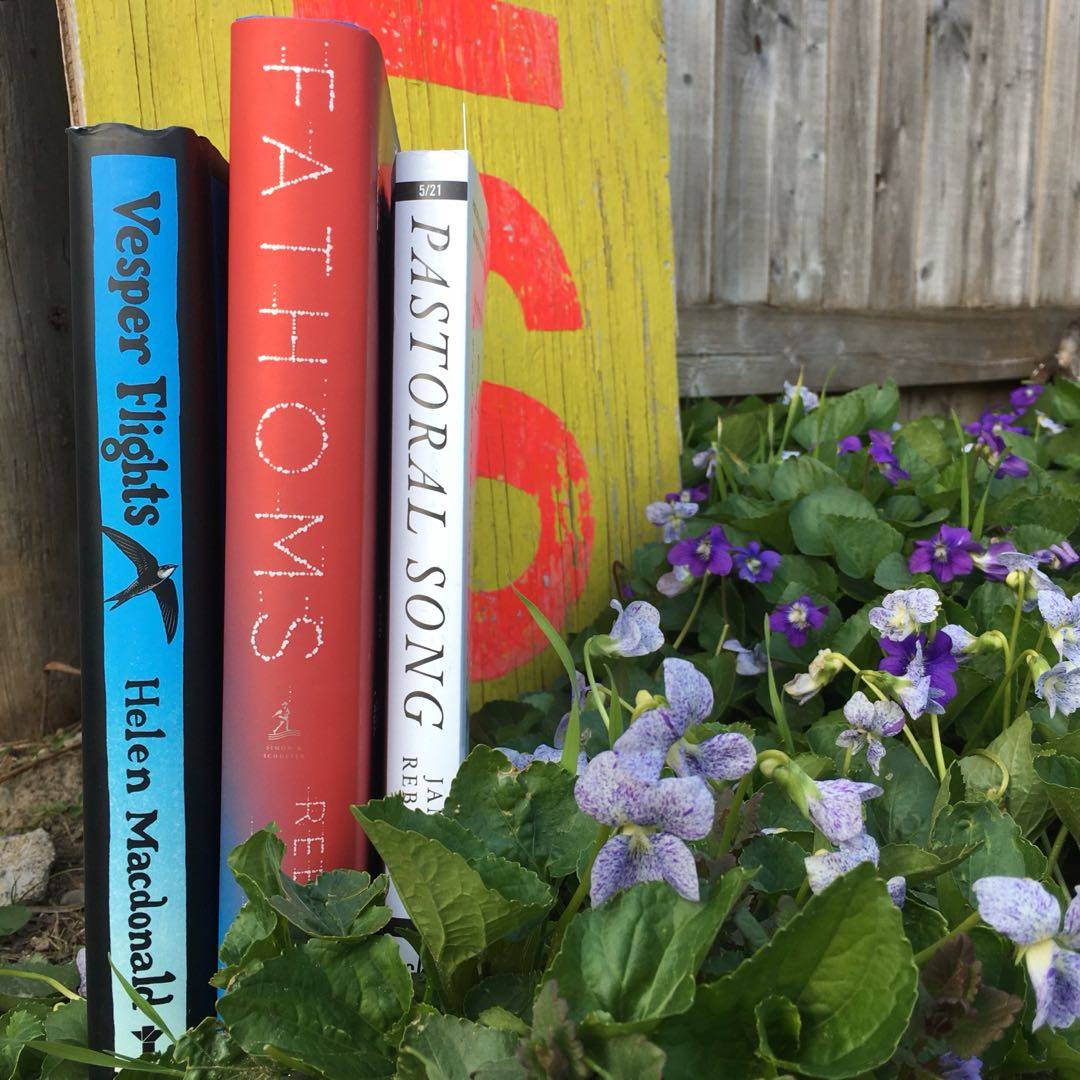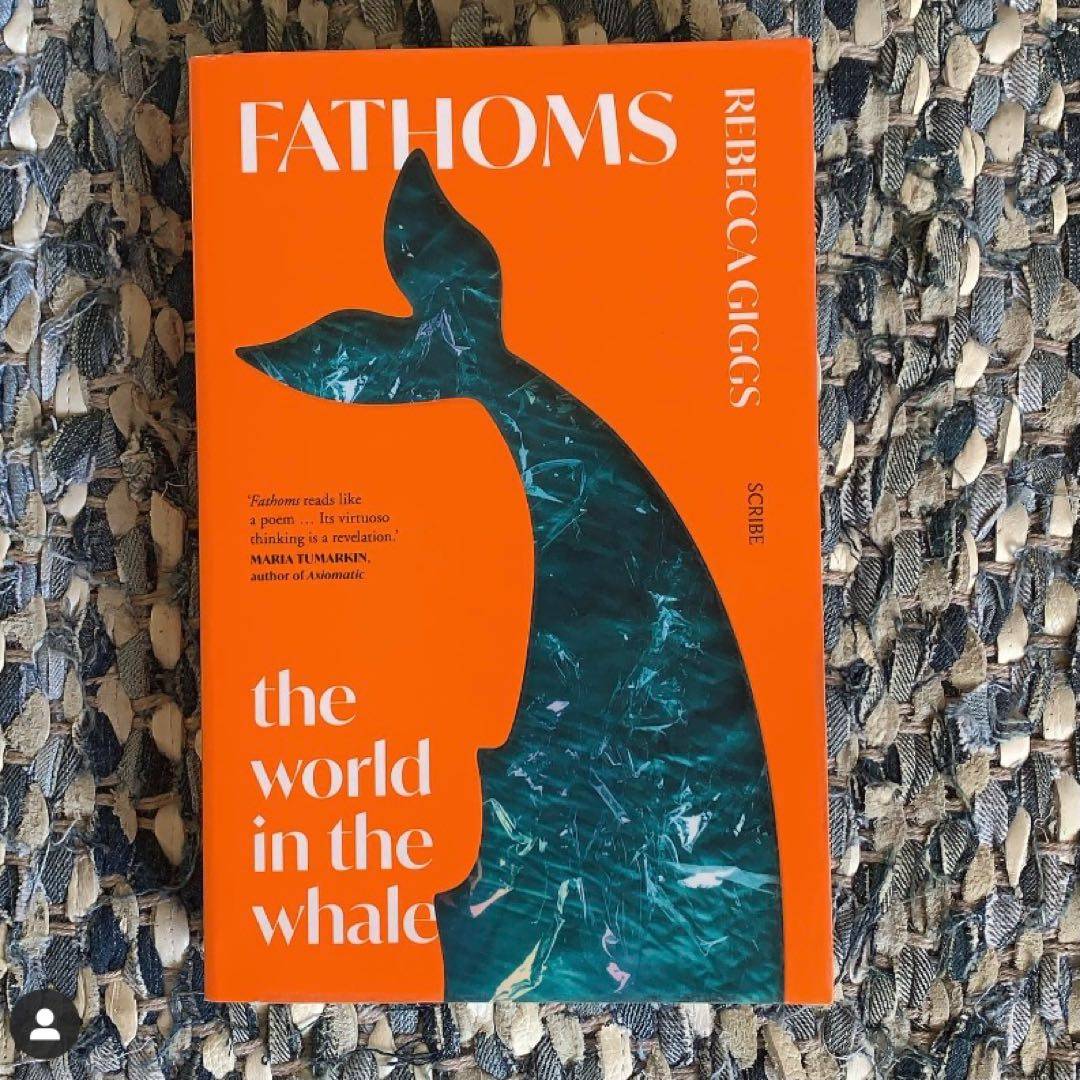
While there are some genuinely interesting facts in here (go google the beluga named NOC, you‘ll thank me), overall I found it a bit to navel-gazey and not focused enough on whale facts. I wanted a lot more science in it.

While there are some genuinely interesting facts in here (go google the beluga named NOC, you‘ll thank me), overall I found it a bit to navel-gazey and not focused enough on whale facts. I wanted a lot more science in it.

Started a book about a beached whale at the beach today.

Mini haul for #IndependentBookstoreDay (& honestly, hardcovers don‘t come cheap; a mini haul is about all I can handle 😅).
I‘ve been unexpectedly digging the nonfic even more than novels lately. Who am I, even?!
I know I‘m preaching to the choir...but don‘t forget to visit (or order online from) your favorite local haunt before the day is done!

“In their breadth of connectedness, do whales not show us how to be conscious of environments we ourselves cannot see, environments beyond our habitation where crisis is being staged?” A thorough, yet lyrical, look at all aspects of whales and their ocean home, and what humans can learn from them. Award-winning nature writing.

That whale lice, these scuttled smatterings, can document the migration of a single right whale over a million years ago is, you must admit, astounding.
(Internet image of whale lice)

How do you sit with this terrible sad news from the ocean, day after day? […] There is hope. A whale is a wonder not because it is the world‘s biggest animal but because it augments our moral capacity. A whale shows us it is possible to care for that which lies outside our immediate sphere of action, but within our sphere of influence—we care deeply about the whale because it is distant. Because it speaks to us of places we will not go. Because ⬇️

This is the incongruity of plastic: it can be so changeable & compliant, so plastic & expendable, yet we‘re told that it will endure beyond our lifetimes. Omnipresent & cheap, no substance less appears to warrant the aura of the eternal. Yet plastic will survive us. Escape us. Plastic is geologic in its original state. Polyvinyl comes from coal. The feedstock of polyethylene is crude oil. Other plastics derive from natural gas & its byproducts.⬇️

Whales buoyed hearts. Whales were a wellspring of awe. How hungry we were, now, for awe!

In this chapter, the lists of objects found inside whales is breaking my heart. DVD cases. Car engine hood. Dishwasher innards. An entire greenhouse.

Oceanic ecologies are changed by escalating global carbon emissions, a portion of which comes from industrial meat production, but food waste—how much food goes *uneaten*, including wasted vegetable produce—is another significant contributor to the devolving climate. Worldwide, roughly 8% of global emissions come from uneaten food, either junked from homes, rotted in the course of transportation, or rejected from retail sale because of ⬇️

In 2009, data released by maritime industry insiders showed that fifteen of the world‘s biggest ships were emitting as much pollution as all the cars—760 million cars—then in existence.
(Internet photo)

If we go to nature to settle our minds, it should come as no surprise that taking animals out of nature unsettles theirs.

In the shallow oceans some fourteen thousand tons of sunscreen was thought to have rinsed off sightseeing snorkelers and divers, contributing to the collapse of reefs. (Common ingredients in sunblock had been discovered to cause coral bleaching at very low concentrations.) The rush to see reefs still neon and jumpy had inadvertently sped up their decline.
(Internet photos)

Hiking and mountaineering associations in Europe implored visitors to stop scattering the ashes of loved ones on famous peaks, because the phosphorus and calcium of so many incinerated bodies had changed the soil chemistry on which fragile high altitude plants depended.

These are almost impossible numbers to wrap your head around, I know.

“it was not unheard of for Linnaeus to name an organism in jest or spite: he christened weeds after people he hated.”
(Screenshot from https://www.sciencefocus.com/nature/how-carl-linnaeus-used-scientific-naming-to-...

Lucy, my sister, & I, 7 & 8 years old: in the museum, our minds flung upward. Soaring unseen, 5 flights of stairs overhead, were the white bones of the blue whale. We felt it jerk on our attention. […] We were a duo with theatrical tendencies. All jest & hiss, good liars, sulkers in cahoots & picky eaters, we toppled everywhere into handstands.
(Internet photo)

What environment was ever more shielded from our collective imagination than the underside of the sea surrounding Antarctica? Unlit omnisphere, far-fetched. White noise; ice shifting, krill krilling. Trundled by see-through salps, orbital sponges & other questionably animate organisms, the seabed shilly-shallies into murk, lacking all tactility & aspect. No writer, in good conscience, could reach for a word like ‘terrain‘ to detail it. A void. ⬇️

Humpbacks feed their young on pink milk. Pink, as an indirect result of their rosy diet of krill. Around 100 gallons per day. […] Humpback whales have no lips to speak of—their mouths have hard edges—so the calves are thought to curl their tongues into long, dexterous funnels, with which to suckle.
(Internet photo)

People of the 19th century […] were almost constantly in contact with whale-gleaned products, in much the same way as most people today are never far from plastic objects.

Currently reading: Fathoms by Rebecca Giggs.
🐳
Part of my extremely unlikely attempt to read the Stella longlist before the shortlist announcement next week.

I‘ve only read the prologue so far and my heart is already sore.

Have you ever seen a whale? Face-to-face with the world‘s largest creature, sadly beached on the coast of Western Australia, Rebecca Giggs was captivated. Fathoms is a meticulously researched book, rich in detail and emphatic in tone, one that draws our attention to something perhaps even larger than the whale: the legacy of humanity‘s impact on the sea and skies. Full review here: http://keepingupwiththepenguins.com/new-releases/